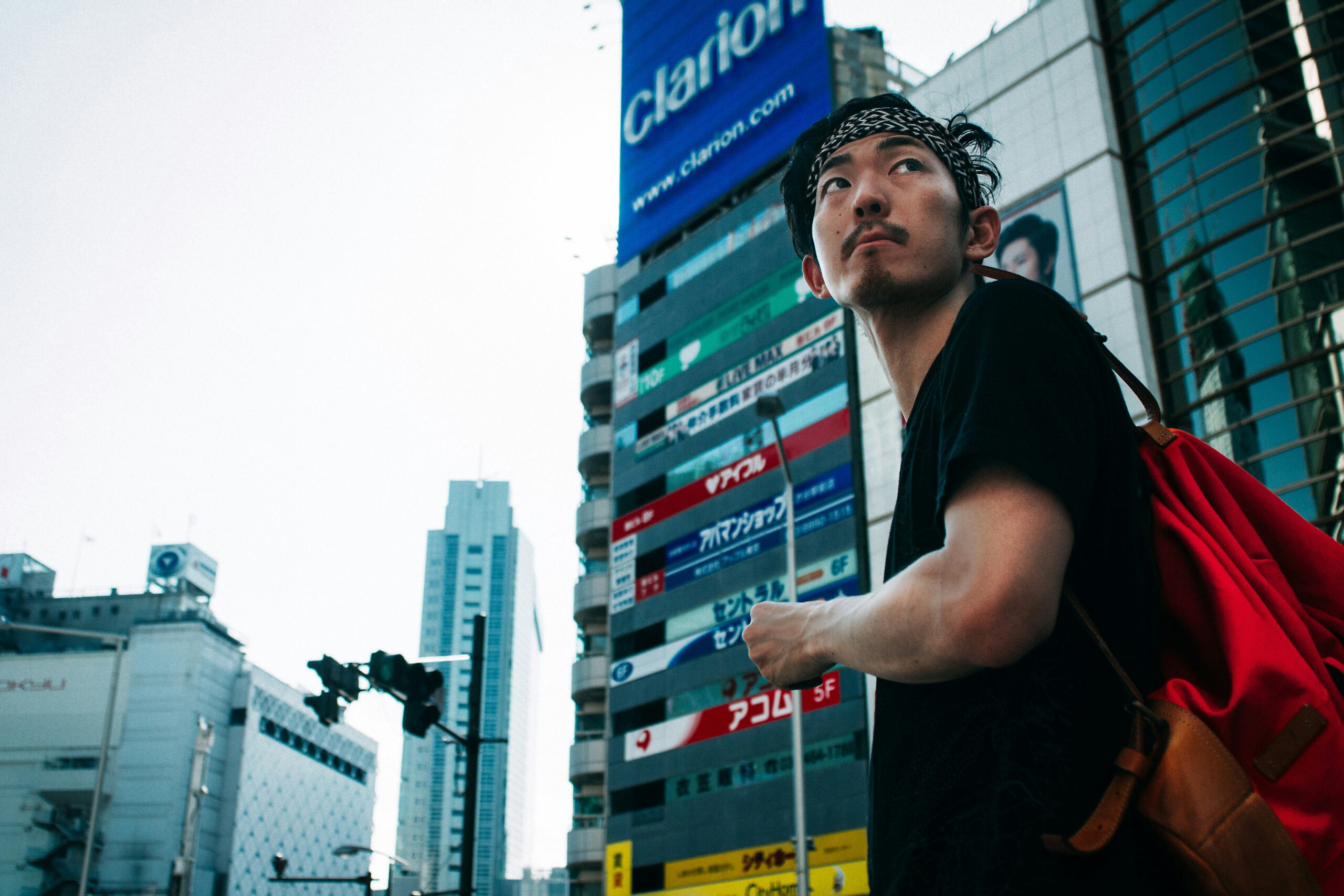In the heart of Japan, the rhythm of daily life beats with a unique cadence, embodying a blend of ancient traditions and cutting-edge technology. From the serene morning rituals to the bustling commute and the unwinding evening customs, a day in the life of a typical Japanese citizen unfolds with precision, efficiency, and a deep sense of community. This article peels back the layers of this daily routine, offering an inside look at the practices that define and distinguish the Japanese way of life. Through this journey, we’ll explore how these routines not only shape the individual’s day but also reflect the broader cultural ethos that makes Japan a fascinating study of harmony between the old and the new.
Morning Rituals: Awakening in Japan
The day begins early in Japan, with most citizens rising with the sun. Morning rituals are a cherished aspect of Japanese culture, emphasizing mindfulness and preparation for the day ahead. Many individuals engage in physical exercises such as stretching or practicing traditional arts like Tai Chi, setting a calm and focused tone for the day. Breakfast is typically a healthy affair, consisting of rice, miso soup, fish, and pickled vegetables, reflective of Japan’s culinary traditions. Families often eat together, valuing this time as an opportunity for connection before the day’s activities pull them in different directions. After breakfast, personal grooming and dressing in meticulously chosen attire signal the transition from private life to the public sphere, with many opting for the sleek professionalism of business suits or the crisp lines of school uniforms.
Navigating the Commute: Trains and Crowds
The Japanese commute is an experience in itself, marked by the remarkable punctuality and efficiency of the public transportation system. Trains, the lifeline of Japanese urban life, are famed for their timeliness, cleanliness, and frequency. Commuters, well-versed in the etiquette of travel, form orderly queues and make way for alighting passengers with a precision that reflects the respect for collective harmony. The morning rush turns stations into seas of people, yet the atmosphere remains remarkably orderly. Personal space is scarce, prompting an unspoken etiquette where many retreat into books, smartphones, or simply close their eyes, respecting the shared silence. Bicycles are also a popular mode of transport, especially in suburban areas, where they complement the extensive train network.
The Work Ethic: Inside Japanese Offices
Within Japanese offices, the work ethic is a manifestation of dedication, respect, and collective responsibility. The day usually begins with a morning meeting, where teams synchronize their goals and pay homage to the company’s ethos. Employees are known for their diligence, often working long hours in a phenomenon known as ‘overwork culture’, although there’s a growing awareness and effort to combat this. Respect for hierarchy is evident, with junior employees deferring to their seniors, reflecting the Confucian values of respect and obedience. Yet, there’s a strong sense of camaraderie, with coworkers bonding over shared tasks and after-work activities. Office environments are typically quiet and focused, with personal interactions conducted with politeness and discretion.
Midday Meals: Exploring the Bento Box
Lunchtime in Japan is more than a meal; it’s a ritual that balances nutrition, aesthetics, and efficiency. The bento box, a compact, multi-compartmentalized container, is a common sight, offering a balanced meal of rice, fish or meat, vegetables, and pickles. Many take pride in preparing these boxes either for themselves or their family members, turning them into an art form known as "kyaraben" with food decorated to look like popular characters or animals. For those without the time to prepare a homemade bento, convenience stores and bento shops offer a wide variety of options, illustrating the importance of mealtime as a moment to pause and nourish both body and spirit. Eating places, from company cafeterias to local eateries, become social hubs where individuals momentarily step away from their roles and responsibilities to share a meal and conversation.
The Art of Efficiency: Work Culture Insights
Efficiency in Japanese work culture is not just about speed; it’s about precision, respect for one’s role, and a continuous pursuit of improvement, known as "kaizen". Meetings are concise, with clear agendas and respect for everyone’s time. The practice of "nemawashi", or informal consensus-building, ensures that decisions are made smoothly and with the collective agreement, minimizing conflict and fostering a sense of belonging. Paperwork and personal desks are kept meticulously organized, reflecting the value placed on orderliness and discipline. Technology plays a significant role, with companies continually adopting new tools and methodologies to streamline operations and enhance productivity. Yet, amidst this efficiency, there’s a deep respect for taking the time to do things right, whether it’s crafting a presentation or welcoming a new employee.
Afternoon Breaks: A Moment of Zen
Afternoon breaks in Japan offer a brief respite from the intensity of the workday. Many office workers take advantage of this time to step away from their desks, enjoying a cup of tea or coffee. Some companies encourage short "power naps", recognizing the benefits of rest on productivity and creativity. Traditional practices, such as a quick visit to a nearby shrine or temple, provide a spiritual pause that reenergizes the spirit. For those in more creative or flexible environments, a stroll through a local garden or park during lunch break offers a moment of connection with nature, reflecting the Japanese appreciation for the natural world. These breaks are not just about physical rest but about mental and emotional renewal, allowing individuals to return to their tasks with renewed focus and clarity.
Evening Commute: The Journey Home
As the working day comes to an end, the evening commute begins, mirroring the morning’s orderly flow but with a sense of anticipation for the night’s reprieve. Trains and buses fill once again, carrying millions back to their homes or to evening engagements. The atmosphere is more relaxed, with conversations a bit louder and the pace a tad slower, as the collective mindset shifts from work to personal time. For many, this journey is a transition period, where the stresses of the day begin to fade, and the focus turns to family, friends, and self-care. Street vendors and local shops bustling in the evening hours offer tempting detours for those looking to pick up dinner or a snack, highlighting the blend of convenience and tradition that characterizes much of Japanese life.
Family Time: Dinner and Conversation
For most Japanese citizens, the evening is a cherished time for family and relaxation. Dinner is an important ritual, bringing together family members to share their day’s experiences over a meal. Traditional dishes, often prepared with care and attention to seasonal ingredients, are common. The meal is not just about sustenance but about nurturing bonds and expressing gratitude for one another’s presence. Conversation flows, with elders sharing wisdom and children recounting their day’s adventures, reinforcing the family unit’s centrality in Japanese society. After dinner, many families engage in shared activities, whether it’s watching television, playing games, or simply enjoying each other’s company, emphasizing the importance of quality time together.
Nightly Traditions: Baths and Relaxation
The Japanese bath, or "ofuro", is a nightly tradition that transcends mere cleanliness. It’s a ritual of relaxation, a moment to wash away the day’s fatigue and stress. The hot water is believed to improve circulation, relieve muscle aches, and promote a sense of calm. Many households share this ritual, taking turns in the bath, while discussing their day or plans for tomorrow. After the bath, wearing "yukata" or light cotton robes, the evening continues with activities such as reading or listening to music, further unwinding in preparation for a good night’s sleep. This practice not only highlights the importance of self-care but also reinforces the home as a sanctuary of peace and relaxation.
Community Connections: Neighborhood Walks
Evenings in Japan often feature gentle neighborhood walks, a practice that fosters community ties and personal well-being. These strolls, whether alone or with family, offer a chance to greet neighbors, explore local shops, and enjoy the night air. Walking through local shrines or parks, illuminated by soft lanterns, provides a moment of reflection and appreciation for one’s surroundings. Community events, from small festivals to local markets, draw people together, reinforcing the strong sense of belonging and mutual support that characterizes Japanese society. These walks are a reminder of the interconnectedness of individual, community, and environment, reflecting the collective ethos that underpins much of Japanese life.
The Role of Technology in Daily Life
Technology is woven into the fabric of daily life in Japan, blending seamlessly with traditional customs and practices. From the ubiquitous use of smartphones for everything from payments to navigation, to the advanced robotics in manufacturing and service industries, technology enhances efficiency and convenience. Even in personal routines, innovations like intelligent toilets, high-tech home appliances, and sophisticated health monitoring gadgets reflect a society that embraces the future while honoring its past. This integration of technology is not just about practicality; it’s a reflection of Japan’s forward-thinking spirit, a commitment to continuous improvement and adaptation in all aspects of life.
Reflecting on the Day: A Cultural Overview
A day in the life of a typical Japanese citizen reveals a society that values harmony, respect, and community. From the morning rituals that ground individuals in tradition and purpose, to the efficient yet mindful work culture, and the evening customs that foster family bonds and personal well-being, each aspect of the day is imbued with meaning. This daily routine, with its blend of ancient customs and modern innovations, offers a window into the Japanese ethos, one that balances individual responsibility with a deep sense of belonging to a larger community. As the world becomes increasingly interconnected, understanding and appreciating the nuances of cultures like Japan’s becomes ever more important, providing insights into ways of living that prioritize harmony, efficiency, and the collective over the individual.
In conclusion, the daily life of a typical Japanese citizen offers a rich tapestry of traditions, values, and modern conveniences that together create a unique lifestyle. This inside look reveals not only the external routines but also the underlying cultural principles that make Japan a country of profound discipline, community, and innovation. As we reflect on these practices, it’s clear that there’s much to learn from the Japanese way of life, from their dedication to efficiency and quality to their deep respect for nature and each personal connection. In a world that often prizes speed over substance, Japan’s daily rituals remind us of the importance of mindfulness, respect, and balance, lessons that resonate far beyond the islands of this fascinating country.








